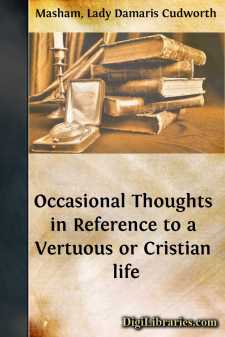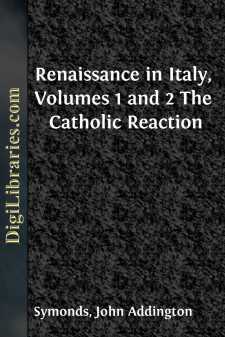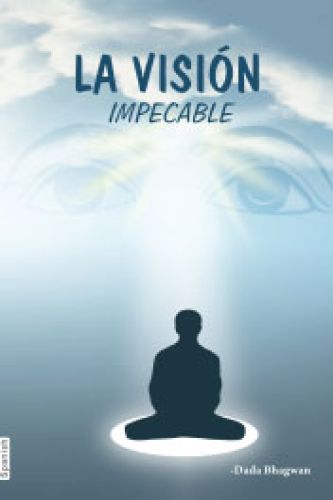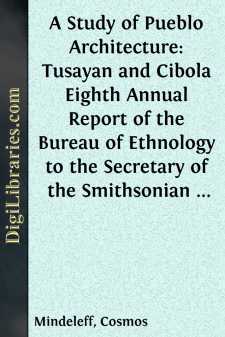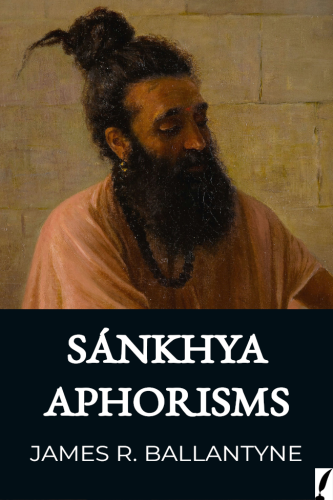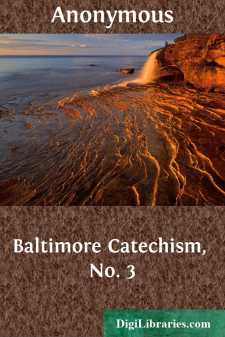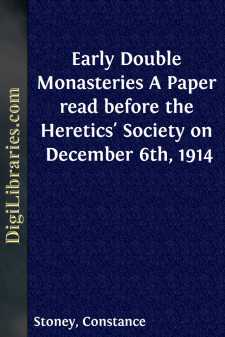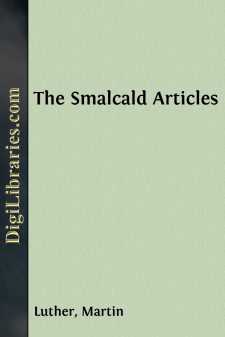Religion
- Agnosticism 2
- Antiquities & Archaeology 21
- Atheism 12
- Biblical Criticism & Interpretation 15
- Biblical Meditations 3
- Biblical Reference 1
- Biblical Studies 11
- Buddhism 8
- Christian Church 52
- Christian Education 5
- Christian Life 26
- Christianity 60
- Cults 2
- Devotional 6
- Eastern 2
- Education 4
- Eschatology 1
- Ethics 3
- General 60
- Gnosticism 1
- Hinduism 15
- History 28
- Holidays 10
- Inspirational 1
- Islam 8
- Judaism 3
- Leadership 1
- Meditations 3
- Monasticism 1
- Mysticism 11
- Philosophy 4
- Prayer 26
- Prayerbooks 5
- Religion & Science 12
- Sermons 54
- Spirituality 53
- Theism 2
- Theology 17
- Theosophy 15
Religion Books
Sort by:
LIFE. There is no so constant and satisfactory a Pleasure, to those who are capable of it, as Rational Conversation gives: And to me, depriv'd of that Enjoyment, the remembrance thereof, is, in my present Solitude, the most delightful Entertainment: Wherein some of my leisure hours will not, I hope, be mispent, should this engage me to prosecute such Thoughts as were lately suggested to me by...
more...
CHAPTER I THE SPANISH HEGEMONY Italy in the Renaissance—The Five Great Powers—The Kingdom of Naples—The Papacy—The Duchy of Milan—Venice—The Florentine Republic—Wars of Invasion closed by the Sack of Rome in 1527—Concordat between Clement VII. and Charles V.—Treaty of Barcelona and Paix des Dames—Charles lands at Genoa—His Journey to Bologna—Entrance into Bologna and Reception...
more...
I We live in and form part of a system of things of immense diversity and perplexity, which we call Nature; and it is a matter of the deepest interest to all of us that we should form just conceptions of the constitution of that system and of its past history. With relation to this universe, man is, in extent, little more than a mathematical point; in duration but a fleeting shadow; he is a mere reed...
more...
I The monk is a type of religious character by no means peculiar to Christianity. Every great religion in ancient and modern times has expressed itself in some form of monastic life. The origin of the institution is lost in antiquity. Its genesis and gradual progress through the centuries are like the movement of a mighty river springing from obscure sources, but gathering volume by the contributions...
more...
by:
DadaBhagwan
Aquellos que buscan llevar una vida espiritual naturalmente se preguntarán cómo progresar en la espiritualidad y cómo vivir los valores espirituales. ¿Debe uno trascender de alguna manera lo bueno y lo malo, lo correcto y lo incorrecto? ¿Cuándo comienza realmente el desarrollo espiritual? Por definición iluminada, el fundamento de una vida espiritual es una cosmovisión impecable; y para lograr...
more...
by:
Cosmos Mindeleff
INTRODUCTION. The remains of pueblo architecture are found scattered over thousands of square miles of the arid region of the southwestern plateaus. This vast area includes the drainage of the Rio Pecos on the east and that of the Colorado on the west, and extends from central Utah on the north beyond the limits of the United States southward, in which direction its boundaries are still undefined. The...
more...
Sankhya is one of the six schools of Hindu philosophy that accept the authority of the Vedas (Sruti). The other schools are Yoga, Nyaya, Vaisheshika, Vedanta, and Mimamsa. Sankhya is closely related to the Yoga school. The founder of the Sankhya school was Sage Kapila. Three canonical texts of this school are available today: Isvarakrishna's Sankhya Karika, Tattva Samasa, and the Sankhya Sutra of...
more...
by:
Anonymous
CATECHISM THE LORD'S PRAYER. Q. 1. Say the Lord's Prayer. A. Our Father, who art in heaven, hallowed be Thy name; Thy kingdom come; Thy will be done on earth as it is in heaven. Give us this day our daily bread; and forgive us our trespasses as we forgive those who trespass against us; and lead us not into temptation, but deliver us from evil. Amen. Q. 2. Who made the Lord's Prayer? A....
more...
by:
Constance Stoney
The system of double monasteries, or monasteries for both men and women, is as old as that of Christian monasticism itself, though the phrase "monasteria duplicia" dates from about the C6. The term was also sometimes applied to twin monasteries for men; Bede uses it in this sense with reference to Wearmouth and Yarrow, while he generally speaks of a double monastery as "monasterium...
more...
by:
Martin Luther
Preface of Dr. Martin Luther. Since Pope Paul III convoked a Council last year, to assemble at Mantua about Whitsuntide, and afterwards transferred it from Mantua, so that it is not yet known where he will or can fix it, and we on our part either had to expect that we would be summoned also to the Council or [to fear that we would] be condemned unsummoned, I was directed to compile and collect the...
more...


